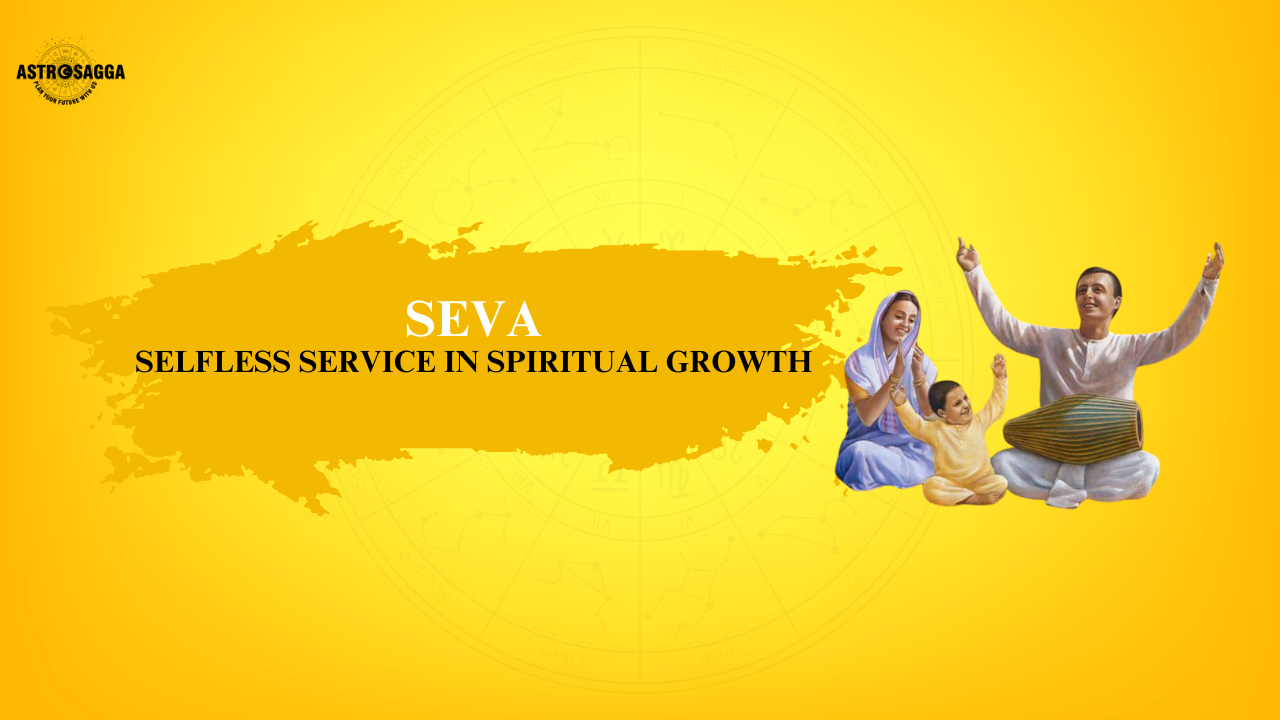Seva, a Sanskrit term meaning "selfless service," holds a prominent place in many spiritual traditions around the world. Rooted in the concept of serving others without expecting anything in return, seva is not merely an act of kindness but a spiritual practice that enriches the soul and aids in personal and spiritual growth. In this blog, we will explore the deeper significance of seva, its connection to spiritual evolution, and how practicing it can transform both the individual and the community.
Understanding Seva: What Is Selfless Service?
Seva is more than just charitable work; it is a path to spiritual awakening. In Hinduism, Sikhism, Buddhism, and many other spiritual traditions, seva is considered a way to purify the mind and heart. By engaging in selfless acts of service, practitioners believe they can transcend their ego and experience a sense of oneness with the universe.
The concept of seva encourages individuals to serve others without any desire for personal gain, recognition, or reward. It's about offering help, support, or service as an expression of love and compassion. This is the true essence of seva—giving without expecting anything in return.
The Spiritual Benefits of Seva
Practicing seva offers profound spiritual benefits. It helps in dissolving the ego, one of the biggest obstacles to spiritual growth. When you engage in selfless service, you put others' needs before your own, which gradually breaks down the sense of separateness and ego.
1. Ego Dissolution
In many spiritual teachings, the ego is seen as a barrier that separates individuals from their true selves and from the Divine. Seva offers a practical way to dismantle the ego by focusing on others and giving up the need for acknowledgment. As the ego diminishes, you become more connected to your higher self and to the world around you.
2. Karma Cleansing
According to the law of karma, every action generates consequences. By engaging in selfless service, individuals can accumulate positive karma, which in turn helps in neutralizing negative karma from past actions. This practice leads to a more harmonious and balanced life, fostering spiritual growth.
3. Developing Compassion and Empathy
Seva nurtures qualities like compassion, empathy, and kindness, which are essential for spiritual development. When you help others without expecting anything in return, you develop a deeper understanding of human suffering and gain a sense of connection to all beings. This brings you closer to realizing the interconnectedness of all life.
Read Also - Chanting Om: The Sound of the Universe
Types of Seva
Seva can take many forms, depending on one's resources, abilities, and circumstances. Whether you're serving in your local community or globally, the intent behind your actions matters more than the scale of the service. Below are some popular forms of seva:
1. Physical Seva (Tan Seva)
This involves using your physical energy to help others, such as volunteering at shelters, planting trees, or helping with manual labor in your community. Physical seva is about putting in hard work with your body for the benefit of others.
2. Monetary Seva (Dhan Seva)
If you have financial resources, you can engage in dhan seva by donating money to charitable causes, supporting spiritual organizations, or providing financial assistance to those in need. This form of seva is equally valuable and helps sustain initiatives that improve society.
3. Mental or Emotional Seva (Man Seva)
Serving others through mental or emotional support is another form of seva. It could involve counseling someone, offering a listening ear, or simply spreading positivity and encouragement in times of hardship.
Seva and Community Building
Seva plays a crucial role in building strong, compassionate communities. When people come together to serve others, the bonds between them are strengthened. Communities that practice seva often have a sense of unity, where members support one another and work toward collective well-being.
For example, in Sikhism, the practice of "Langar," or community kitchen, is a form of seva where volunteers cook and serve free meals to anyone, regardless of their background. This tradition embodies the spirit of selfless service and community building.
The Role of Seva in Personal Spiritual Practice
For those on a spiritual path, seva is an essential practice. It serves as a bridge between inner spiritual development and outer service to the world. Through selfless service, spiritual seekers can experience a deeper connection to the Divine, whether through the gratitude of those they help or through the quiet fulfillment that comes from serving.
Seva complements other spiritual practices like meditation, prayer, and yoga by encouraging individuals to live their spirituality in the world, not just within themselves. It offers a practical way to express one's spiritual values in day-to-day life.
How to Incorporate Seva into Your Life
If you wish to incorporate seva into your life, here are some tips:
Start Small: You don’t have to make grand gestures. Begin with small acts of kindness, such as helping a neighbor or volunteering a few hours at a local charity.
Find Your Passion: Identify causes that resonate with you. Whether it’s environmental work, education, or healthcare, find a form of seva that aligns with your interests and strengths.
Consistency Matters: Seva is most impactful when practiced regularly. Make it a habit, whether it’s through a weekly volunteer session or monthly donations.
Practice Mindfulness in Seva: While serving, remain mindful and present. Focus on the act of giving rather than on the outcome or how it might benefit you. This brings greater spiritual fulfillment.
Seva and the Path to Enlightenment
In many spiritual traditions, seva is considered a path to enlightenment. By practicing selfless service, you align yourself with the higher principles of love, compassion, and unity. This alignment brings inner peace, contentment, and a deeper understanding of the true nature of existence.
For instance, in Hinduism, the Bhagavad Gita teaches the importance of "Nishkama Karma," or action without attachment to results. Through selfless service, individuals can transcend the cycle of birth and death (samsara) and attain moksha or liberation.
Conclusion
Seva, or selfless service, is much more than an altruistic act—it’s a powerful tool for spiritual growth and transformation. By engaging in seva, individuals not only contribute to the well-being of others but also purify their minds and hearts, moving closer to spiritual enlightenment. In a world that often emphasizes individual gain, seva reminds us of the profound joy that comes from giving without expecting anything in return.












